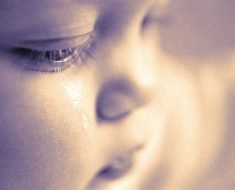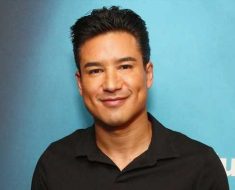My daughter was 10 when I first told her about my abortion. We had just seen Broadway’s Spring Awakening which, as far as musicals go, constitutes a crash course in sex-ed. Rape, masturbation, incest, and abortion are all part of the plot. I had been wanting to talk to her about my abortion for a while, and this seemed like an organic way to bring it up.
I was 19 and the only patient at the clinic with her boyfriend and her mom in tow. There was a large television in the waiting room blaring daytime talk shows. I wasn’t paying much attention until I heard the words, “This show is about guilt.” Suddenly, all conversation ceased, and everyone’s eyes shifted to the TV screen. There was a tight shot on host Sally Jesse Raphael (if you’re unfamiliar, think Jerry Springer but with red eyeglasses and less screaming) who said, “This show is about mothers who killed their children.”
At this point, I figured a nurse would come bounding out from behind the desk, change the channel, apologize, and offer free abortions for all. But nope. The episode was about freak accidents — something I wouldn’t need to worry about.
However, I was worried about other things: Would the procedure be painful? Would I become a mom at a later date? Would I regret what I was doing?
I’m happy to say that I made it through that experience unscathed and, 15 years later, I became a mom by choice. If I had gone through with an unwanted teenage pregnancy, I’m sure I wouldn’t have the wonderful family I do today. I have zero regrets about exercising my legal and moral right to have an abortion.
I do, however, have other regrets.
I regret that my mother, a wonderful parent overall, never spoke openly and honestly with me about sex. I regret that sex education at my school consisted primarily of pleas for abstinence. I regret that as a sexually active teen, I didn’t have easy and affordable access to reliable birth control. And I regret that the deeply personal decision of abortion was, and still is, stigmatized, politicized, and criminalized.
“I have zero regrets about exercising my legal and moral right to have an abortion.”
I shared my abortion story with my adolescent daughter because I believed it would help prevent her from ever needing one. That’s because we didn’t have a one-time talk; it’s part of a larger ongoing conversation about safe and satisfying sex, consent, and bodily autonomy. While I am not scarred by or ashamed of my abortion, it’s not a must-have life experience.
I also told my child the more challenging details: How one drunk and careless summer night, I became pregnant while living with my boyfriend’s family in a small town in Maine after my sophomore year of college. How I didn’t have a trusted adult to talk to about what to do. How the nearest abortion provider was a two-hour drive away, and neither my boyfriend nor I had a license. How we enlisted his cousin to drive us there and lend us money to cover the bill, but how I initially decided not to go through with it — in fact, getting off the operating table after doctors administered local anesthesia — because I wanted to talk to my mom first. How my boyfriend’s cousin soothed my concerns by giving me a copy of Ursula K. Le Guin’s powerful essay “The Princess” about her abortion — years before Roe v. Wade. It turns out that Le Guin’s parents lived on Riverside Drive in New York City, just like mine. That’s when I called my mom.
Abortion was a crime when Le Guin had hers in 1950. It was technically legal when I had mine in 1990, but availability depended on geography and privilege. In Maine, getting an abortion was challenging and required research, cash, and a car. Back in New York, my mom and I opened the Yellow Pages and found a clinic five subway stops away. I vividly recall talking to a few women who were waiting to have abortions that day, including another teen, a mother of four who didn’t want a fifth child, and a woman with irregular periods who didn’t realize she was pregnant until her second trimester. Everyone was there for their first abortion. No one was using it as birth control, no one was making the decision lightly, and no one planned to come back. I found all of that comforting.
It’s now 2021 and for women seeking an abortion in this country, it’s all about location, location, location. I’m raising my daughter, now 16, in New York where the Reproductive Health Act codified abortion rights into state law. But as we research colleges, we’re mindful of the abortion laws in each school’s state. That means we’re not applying to universities in Texas (where abortion is banned after six weeks, which is also typically before women know they are pregnant), or in Oklahoma, Idaho, South Carolina, Georgia, Ohio, Kentucky, Mississippi, Missouri, Tennessee and Louisiana, where abortion laws are strictest.
But with Roe v. Wade in danger of being overturned, soon there may be nowhere for my daughter, or any other woman who values her reproductive rights, to go.
That’s why we must keep sharing our abortion stories, especially with children of all genders. We need to raise a generation that doesn’t view abortion as shameful, sinful, or something to hide; a generation that understands that abortion is a personal choice, not a political stance. That’s how we fight to protect women’s reproductive rights — by never shutting up.
Read about these celebrities got honest with their kids about racism.

Source: Read Full Article





